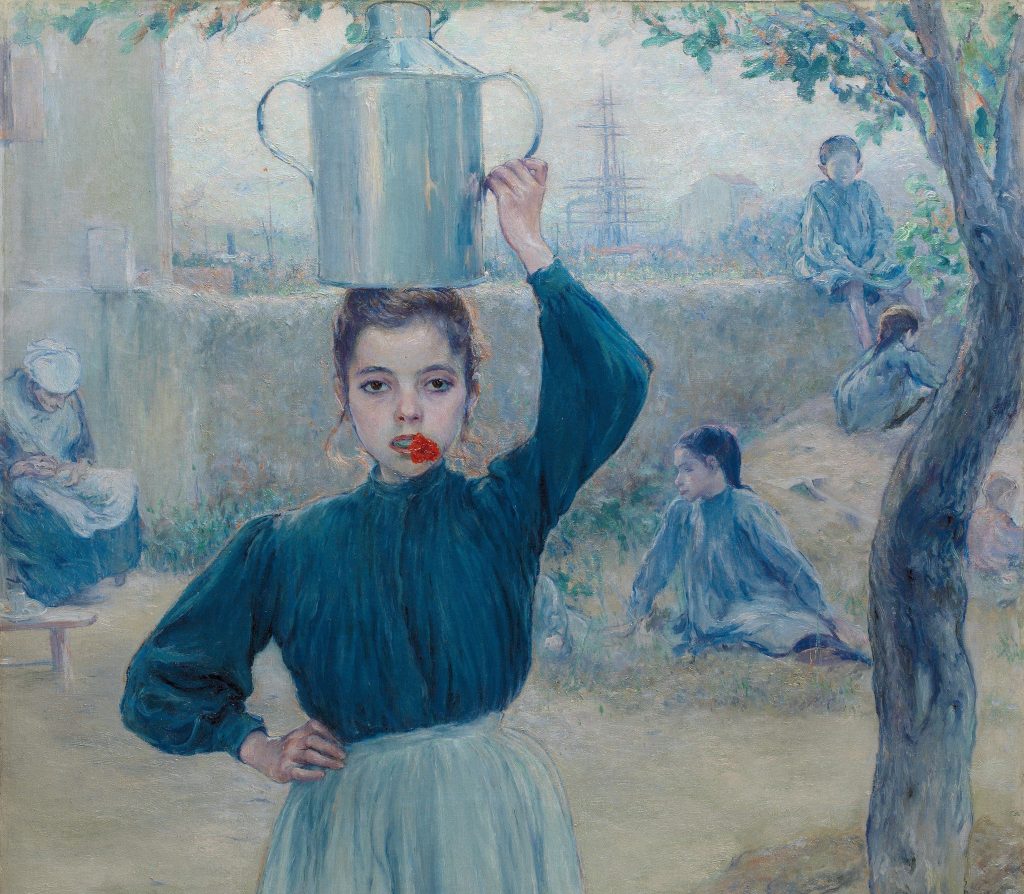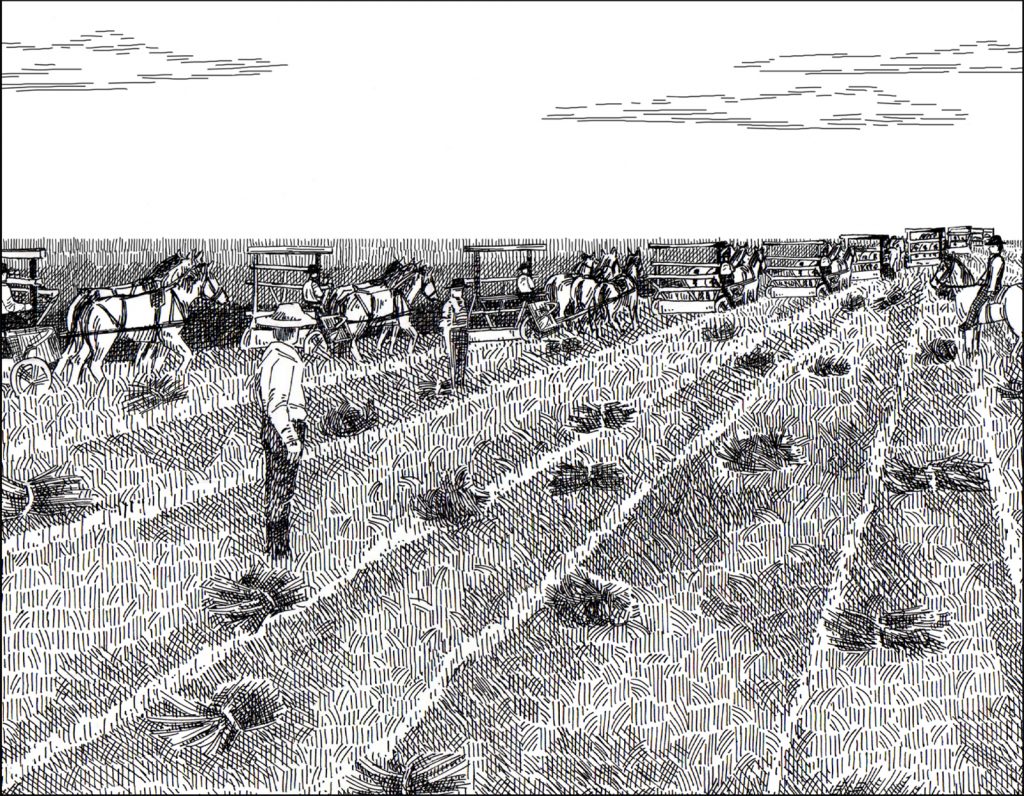Sakeen the housemaid was rarely free to play with us, even at parties. She had to prepare dinner, serve it to the guests, and clean up. Shahnaz, my uncle’s wife, liked to throw big parties to outplay our mothers in a game between them known as “The Best Hostess.” Her dinner table was always colorful with various dishes, pickles, salads, and desserts.
After dinner, Shahnaz and the other women would move into the living room to sit on the sofa gossiping, waiting for Sakeen to serve them tea. My uncle and the other men changed into pajamas and moved into the guest room to sit on the silk Tabriz carpet and play trump. The boys—my cousin Hossein and others—went to the storage room to play soccer. We girls—Shahnaz’s daughter Nazi, my sister Shadi, and I—moved to the kids’ bedroom to play, hopeful that Sakeen would join us later.
The boys in the adjacent room set up their mini soccer goal nets and divided into two teams. Once their ball started thumping against the wall separating the two rooms, we knew their game had started.
On this particular night in the summer of 1978, Nazi insisted on playing Cinderella. We had told Sakeen Cinderella’s story so often that, flipping through the pictures in the book, she could tell us the story of what happened in each scene. I tiptoed out of the kids’ room and down the corridor leading to the living room to go get her. I stopped by the bathroom door, where I could see women who, as usual, were immersed in a conversation about gold and jewelry. Then, while Shahnaz was bragging about a necklace she’d recently received as a gift from my uncle, I sneaked through the living room into the kitchen. Her sleeves rolled up, Sakeen was forcefully scrubbing the dishes.
Even though she was only three years older than me, Sakeen was much taller. Unlike Nazi and me, flabby girls from upper-middle-class Tehrani families, she was wiry and raggedy, overdressed for summer, wearing a headscarf and gray leggings under a long, thick skirt, like all maids. She was not beautiful, but with her black beady eyes and aquiline nose, she looked as powerful and intimidating as her mistress, Shahnaz, who had brought Sakeen from a village near Quchan, where her family owned land.
This was the time when women of well-to-do families could afford to bring in maids. As a result of the mass migration of villagers to Tehran, there were many women and girls from poor families living in the suburbs who were available to work as housemaids. Meanwhile, their husbands worked as day laborers for construction projects booming in north Tehran.
My father being a judge and my mother a legal secretary, we could have had a maid too. Actually, my mother wanted one badly. I also wanted someone Sakeen’s age to play with me. If only my father was not a clandestine socialist, against both child labor and the shah. Every time I asked him for such a playmate, he would say, “How could you be so insensitive to ask me to separate a child from her family for your own interest? I thought I instilled good values in you.” Every time my mother insisted that he should bring in at least an old woman to help her with housework, he remained firm, saying he hated the culture of showing off that the regime promoted as modernity. It was not real modernity but “Westoxification.” He felt that my mother, as a university-educated woman, should display higher values. In retaliation, my mother would go as far as to insult my father, saying, “You think you are progressive, wasting every weekend playing cards. And in such silly fashion, sitting cross-legged in pajamas on the floor but not removing your tie? No. You might be a judge, but you are still the same provincial man you were when you arrived in Tehran twenty years ago!”
I agreed with both my mother and my father: Papa and the other players certainly looked ridiculous rather than modern, and Maman was definitely jealous of Shahnaz. The year before, Shahnaz had returned her last maid, a very young girl who was the same age as my little sister at the time. Talah’s dark complexion and scruffy appearance contradicted the meaning of her name—gold. Her family had lied about her skills. She was too young to clean the mess Nazi and Hossein and their father left, and she couldn’t cook properly either. Worst of all, she would break into tears whenever Shahnaz scolded her. Once Shahnaz had dumped Talah back in her village, she got into her car to go to the next village to find another family willing to send a daughter to work at her house. But a village woman approached and begged her to take her daughter. The crying mother guaranteed that her girl, who was much older than Talah, wouldn’t be a disappointment.
Nazi told me that Sakeen’s mother had taken Shahnaz to a chicken coop where Sakeen’s father had locked her up. The woman begged Shahnaz, saying that if she took Sakeen, she would be saving the girl’s life and the family’s reputation. There would be no monthly payment; Shahnaz could have Sakeen for free. When I asked why, Nazi told me a story that left me both impressed with and fearful of Sakeen, for, as my mother put it, she could “open my eyes and ears” to secrets beyond my age. Sakeen had run away from home with a truck driver; her father found her at dawn with the man in his truck on a dirt road close to a village. He dragged her home, locked her in, and threatened to kill her the next day. I wouldn’t have believed Nazi had I not seen the whip marks on Sakeen’s back and bruises all over her body the first time I met her in Nazi’s room, stripped shamelessly, flaunting her injuries. The marks Shahnaz left on her body later were nothing compared to those she brought with her from her father’s home. She was certainly tough. It was this toughness, which she displayed defiantly, that attracted me the most…
This piece was published by House of Anansi Press.
Purchase MQR 57:6 or consider a one-year subscription to read more. Nilofar Shidmehr’s story, “Sakeen,” appears in the Spring 2019 Issue of MQR on Iran.





